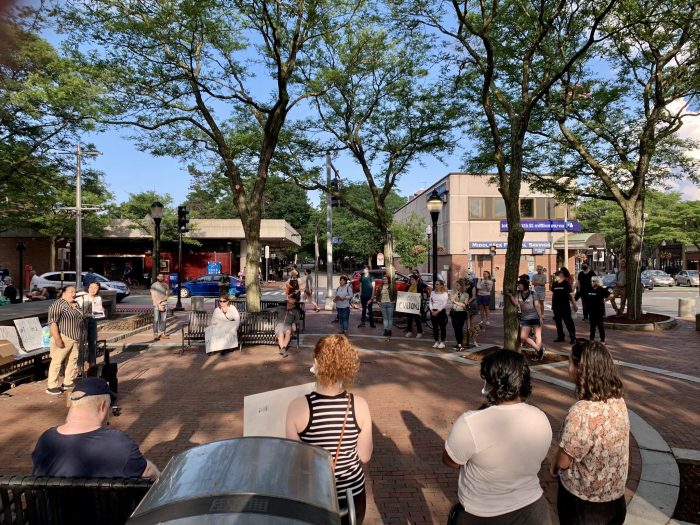Community leaders and nonprofits grapple with how to prepare for loss of housing.
(Somerville Wire) – The City of Somerville’s Residential Eviction Moratorium will expire on September 15, approaching just after the Centers for Disease Control and Prevention’s (CDC) end date of July 31. Community members and activists are foreseeing that the expiration could prompt a new wave of evictions, exacerbating the housing crisis that the pandemic has already brought upon Somerville residents. With many individuals having lost their jobs due to the coronavirus, it has been difficult for many to pay their rent, and protections like the moratorium were put in place to help mitigate the effects of COVID. Now, organizations like the Community Action Agency of Somerville are preparing for the worst.
“Since the start of the pandemic in 2020, many of these households have been in crisis because of job loss, income loss, and the resulting housing instability,” said Nicole Eigbrett, CAAS community organizing and advocacy director. ”The policy protections that we’ve had through the City and State moratorium, that expired in October 2020 … have all been back stops to stemming a potential wave of evictions.” She added, “The need has been unprecedented and unfortunately continues to be so. In many ways, in Somerville, particularly, we have been able to stem and slow that wave of evictions, because we’ve had our City moratorium in place. The mayor has offered very clear directives to his administration … that physical removal under the Somerville moratorium has been illegal. I think that has encouraged and diverted many landlords to turn to organizations like CAAS … but that is our worry, that once the CDC and Somerville moratoriums expire, that’s going to be the next trigger for landlords who have tenants who haven’t been paying their rents this last year and a half, to file that notice to quit, or to escalate a notice and file it in housing or district courts.”
Ellen Shachter, the director of the City’s Office of Housing Stability, said that the public health consequences of eviction and dislocation are significant concerns. The impact on jobs, mental and physical health, loss of transportation, loss of support networks, and children’s education delay will all come into play if people are displaced from their homes. The moratorium has “put some pause” on the evictions and lowered their number, to give time for agencies and others to find resources for tenants that are struggling. For people who have already been hard hit by the pandemic, the expiration of the moratorium will intensify their challenges.
“I think [with] the lifting of the moratorium, our biggest concern is for those people who have really not been able to get back to where they were previously or have other disruption that, in the end, if there aren’t more long- term solutions, like sufficient permanent affordable housing, that some of these families will really be at risk of dislocation,” said Shachter. “… The demographics of Somerville have been changing. Somerville is becoming a wealthier community. I really feel committed to trying to keep those members of the community that are on the lower end of the economic spectrum and those impacted most by COVID and the economic fallout, to try to do everything we can to keep those folks in the city. Many of the folks that we’re working with may have to go back to dangerous and scary situations in Latin America. The actual consequences to families are very individualized, depending on their circumstances, but are potentially life threatening.”
Shachter added that many immigrants and undocumented people have been disproportionally impacted by job and income loss and could experience challenges when the moratorium expires. Michael Libby, executive director of the Somerville Homeless Coalition, said that his organization frequently serves the undocumented population and tries to ensure that people do not “fall through the cracks.”
“We work with a lot of undocumented immigrants, and it’s a delicate process,” said Libby. “We do our best to be sensitive to all their needs and fears. Just like everybody else, their situations vary. Sometimes they could be couch surfing with family and friends, and if the family and friends become at risk, then they indirectly become at risk. Some of the folks that might actually have a tenancy and relationship with the landlord … they could have family and friends that are undocumented staying with them, so by virtue of that, they both become at risk. You have double the problem.”
In June 2021, Governor Charlie Baker signed a bill that extends eviction protections until April 22. Landlords can file evictions against tenants for non-payment of rent, but if the tenant is in the process of getting rental assistance, no action can be taken. Eigbrett said that while this is a step in the right direction, more support should be in place.
“It’s a small piece of the puzzle, and it’s very helpful,” said Eigbrett. “Unfortunately, it presumes that these tenants will get rental assistance or legal assistance in time. It puts the burden on organizers, housing providers, and the tenants themselves to know where to go for help and to be able to get through the waitlist on time. It’s put a lot of pressure on my colleagues, who are trying their best. … Only one lawyer or one advocate can do so much. I would urge the State of Massachusetts to consider strengthening those protections, so the responsibility doesn’t fall so heavily on the tenants themselves, when in many cases, they’re just trying to survive and have a safe and healthy place to live with their family.”
All Somerville Wire articles may be republished by community news outlets free of charge with permission and by larger commercial news outlets for a fee. Republication requests and all other inquiries should be directed to somervillewire@binjonline.org.
SUBSCRIBE TO THE FREE SOMERVILLE WIRE EMAIL NEWSLETTER: https://eepurl.com/hpBYPv
Shira Laucharoen is assistant director of the Boston Institute for Nonprofit Journalism and assistant editor and staff reporter of the Somerville Wire.








